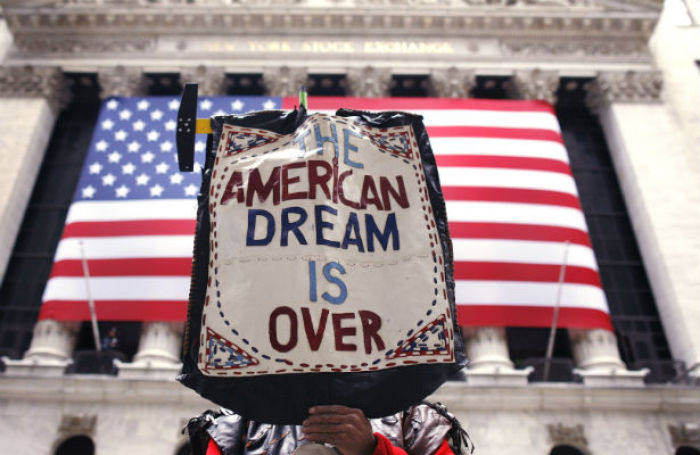Nearly 6 in 10 Believe the American Dream Is Now Out of Reach; More Than Half Feel Children Won't Be Better Off Than Parents

More than half of all Americans believe the American dream is now out of their reach, and most also believe children won't be better off than their parents in the future.
The outlook from the results of a recent CNNMoney American Dream Poll, conducted by ORC international, is particularly bleak among young adults between the ages 18 to 34, where some 63 percent believe the dream is now outright impossible.
"Some 63 percent of all Americans said most children in the U.S. won't be better off than their parents. This dour view comes despite most respondents, 54 percent, feeling they are better off than their own parents," noted CNNMoney.
The hopeless attitude among Americans, say experts, is a reflection of the harsh economic realities many families are facing.
"The pessimism is reflective of the financial realities a lot of families are facing," noted Erin Currier, director of the Economic Mobility Project at Pew Charitable Trusts. "They are treading water, but their income is not translating into solid financial security."
While the majority of Americans have higher incomes than their parents, largely due to two earners in most families, says CNNMoney, just half have more wealth, while savings are low and unemployment is high. Student debt is also growing rapidly.
Ron Haskins, co-director of the Brookings Center on Children and Families, explained, however, that despite the pessimistic outlook among Americans, reality is a bit different than perception.
The report highlighted two studies released earlier this year, which noted that while mobility is worse in the U.S. than in many other developed countries, it hasn't changed much in the U.S. over time, and mobility also varied depending on where people live.
Areas with better schools and higher economic growth had higher potential for mobility while areas with significant African American populations, like the South, showed lower rates of mobility.





























